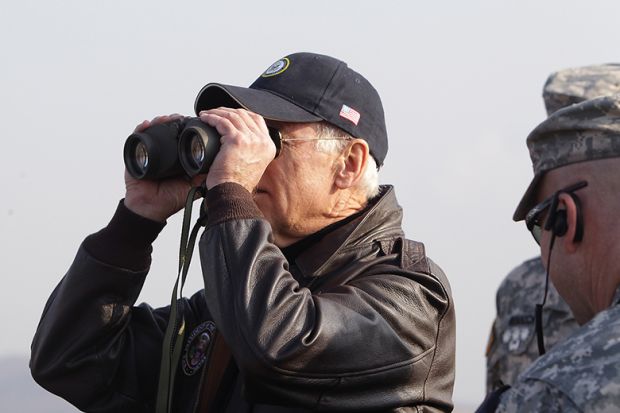US research universities have expressed concern about the Biden administration’s opening approach to policing scientists with overseas ties, saying it lacks coherence and remains too reliant on Trump-era formulations.
The anxiety centres on policy guidance for federal agencies that the Trump administration issued on its final day in office, which was intended to address university fears about its pursuit of scientists with connections to foreign governments.
Rather than revisit that guidance and give universities a chance to offer input, Biden officials appear to have begun implementing it through agencies that include the National Institutes of Health.
“In the new administration, they should have slowed it down, taken comments, reviewed it, before any implementation could go forward,” said Tobin Smith, vice-president for policy at the Association of American Universities (AAU), which represents major research institutions. “That is not what appears to be happening.”
One particular concern set out by Maria Zuber, vice-president for research at the Massachusetts Institute of Technology, was a call in the Trump-written guidance for universities to provide agencies with nationality-specific information on which foreign researchers were working on which grants.
Such a request was unethical and perhaps illegal, as well as unnecessary given that such information was already available to government grant agencies through existing federal immigration databases, Professor Zuber told a White House official at a National Academies of Sciences forum.
“You’re asking for the information on a subset of our population, not everybody,” she told Aaron Miles, the principal assistant director for national security and international affairs at the White House Office of Science and Technology Policy. “That’s a violation of our non-discrimination policies.”
Mr Miles told her he did not see a direct requirement in the guidance for universities to disclose information about foreign nationals working on specific grants, but he acknowledged the possible need for additional review of the question.
The Trump administration repeatedly warned of risks from international research partnerships in academic science, paying particular attention to the danger it saw from espionage directed by China.
That led to a series of cases in which researchers at US universities were removed from their jobs and, in some instances, charged criminally.
High-profile arrests that have raised alarm in academia include those of Charles Lieber of Harvard University and Gang Chen of MIT, both of whom had known relationships with Chinese partners but allegedly did not fully list all details in standard disclosure forms.
While he could not comment on specific cases, Mr Miles told Professor Zuber and other academic leaders that the new policy language was intended to create a consistent set of rules focused on actual threats. “It’s not about catching someone up that’s inadvertently done something wrong,” he said.
“There always need to be those avenues to provide reasonable recourse when there are mistakes or inadvertent things that happen.”
Mr Smith of the AAU credited the Trump-crafted policy with taking important steps in that direction. But the final version of the guidance still left some key issues needing attention, he said, including adjusting expectations to institutional capabilities and existing legal requirements, and ensuring a common set of processes and reporting requirements across all federal agencies.
Register to continue
Why register?
- Registration is free and only takes a moment
- Once registered, you can read 3 articles a month
- Sign up for our newsletter
Subscribe
Or subscribe for unlimited access to:
- Unlimited access to news, views, insights & reviews
- Digital editions
- Digital access to THE’s university and college rankings analysis
Already registered or a current subscriber? Login








